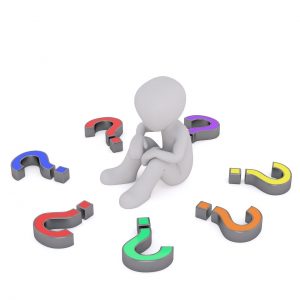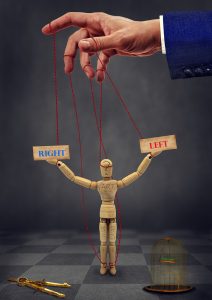This time, Inamori* spoke about the above motto in Kyocera philosophy.
What Inamori said is quoted with “”.
“ In that case (selling goods on credit to a company on the verge of bankruptcy), ‘Should I sell them or refuse to sell them? If I make a decision based on altruism, I should sell the products to that company. However, if I do so, the accounts would remain unpaid and my company would be in trouble. What should I do? Are altruistic behavior and business administration contradictory? ‘Many business leaders get confused with decisions based on altruism. So please think about “real good deeds and superficial ones.”
For example, you love your child so much and raise him spoiled. Your child looks happy every moment when his request is accepted, but as a result, he would grow up to be selfish, become a difficult person to work and communicate with, and he would end up having an unhappy life. This kind of good deed based on the short-term view, is called “superficial good deed.” It may look good for just a short term, but it will bring about bad results over the long term. It is said that “superficial good deeds ultimately help no one, and actually cause a lot of troubles over the long term. “

With the following three points, we can figure out where the action comes from, either superficial or true good deed?
1. Who is ultimately fulfilled?
2. Does it make him/her a beggar?
3. Does it keep him/her dependent?
Let me elaborate one by one.
1. Who is ultimately fulfilled?
“ The important thing here is that you need to think about what is truly good for that person. “
→ We must ask ourselves, “ Are you really acting for that person? ” We need to constantly think about this. While saying I am acting purely for his/her sake, we must ask ourselves, “Is this for your own good, do you want to do this simply because this ultimately benefits you, right? “
We must ask ourselves, “Are you saying this simply satisfies your own sense of justice, or because you want to avoid responsibility, or because you want to be respected by others?” We must constantly and fairly keep asking ourselves. At the same time, we must check, “Who will ultimately be satisfied or fulfilled if I take this action?“

2. Does it make him/her a beggar?
“ Accepting expensive gifts with no reason so frequently, people gradually become arrogant. I think that kind of beggar is the lowest level of human beings… We must not create such the lowest level of human beings, who are very much comfortable with being an arrogant beggar. “
→ When people get used to being given something by others, people start demanding bigger and more expensive stuff, as if all those gifts are granted to them. Even though they have already been given enough, they will try to take more from those around them, thinking that this is not enough.
Subsidies from the central and local governments are one example of this. If we expect charity from others and demand gets excessive, those who look like victims may end up simply becoming the lowest level of people. The distinction between greater good deeds and the superficial good deed must also be considered from this perspective, in terms of whether it makes that person beggar or not.

3. Does it keep him/her dependent?
“ IBM’s corporate motto says that (referring to wild ducks, which were used to being fed by an old man living along the lake, all starved to death when there were no more food at the death of that old man) IBM never train our employees in this way….I recently saw an advertisement of the ODA (Official Development Assistance), which supports developing countries, that said, ‘We don’t give fish to people in poor countries. We do teach them how to fish, though.’ If you just give them fish, once they’ve eaten it there’s nothing left. It just makes them get used to taking things. Now, instead of giving them food, we need to think about how to make sure they can eat. We teach them how to do this. Even if they are hungry and in trouble, they can just go into the river or the sea and catch fish using the method which the ODA taught them.
The idea is that if they learn how to survive, they should be able to survive on their own. This is the “real good deed.” Giving fish and money is only a superficial good deed, and in the end it will make people dependent. In that sense, recently, charity work has also started considering what it really deeded in helping others. When thinking about “altruism,” I would like everyone to fully understand the meaning of the “real good deeds and superficial ones. “
→ This inter-dependency can be seen in relationships between countries, between companies and employees, and between parents and children or siblings. We sometimes unconsciously control others by making them dependent. The root of dependency is actually the “subliminal minds of taking something from others.” It is the consciousness of taking away the other person’s opportunity to grow and trying to fill one’s mind.
Behind the words “for the other person,” there are sometimes unconscious thoughts like this: keeping them dependent to be controlled. I think we need to be careful and look at our own actions, as well as the thoughts and drivers behind those actions.

In summary, to determine whether your actions are “real or superficial good deeds,” you need to objectively analyze who is ultimately fulfilled, check whether it spoils the other person or not, and whether it makes the other person dependent or not. I must closely check my actions and intentions from various aspects.
* Mr. Kazuo Inamori, the founder of Kyocera, KDDI (one of the top tele communication companies in Japan) and the top of revitalization project of JAL. As a well-known Japanese entrepreneur, he has been sharing his experiences and management know-how with managements of small to middle companies in Japan.
Further queries or doubts, please email to ytomizuka@abrilsjp.com
News Letter subscription is here











